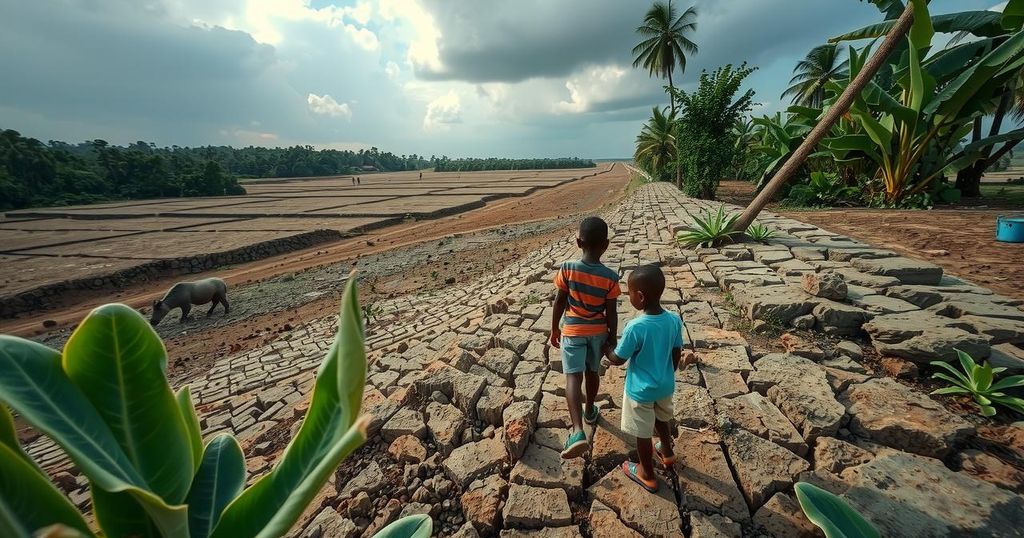Over 420,000 children in the Amazon are affected by extreme drought. UNICEF has called for increased climate financing ahead of the COP29 summit to address food insecurity and lack of access to healthcare and education. The drought has closed schools and clinics across Brazil, Colombia, and Peru, exacerbating risks of malnutrition and infectious diseases among children. Brazil reports a significant reduction in deforestation, highlighting progress in combating climate change.
The UN has reported that over 420,000 children in the Amazon basin are currently impacted by extreme drought conditions affecting Brazil, Colombia, and Peru. This unprecedented drought has persisted since last year, severely disrupting access to vital resources for numerous Indigenous communities relying on waterways for transportation. As leaders prepare to convene at the COP29 climate summit in Azerbaijan, UNICEF Executive Director Catherine Russell has called for urgent climate financing to help mitigate the effects on vulnerable children and families. Russell highlighted the detrimental consequences of environmental degradation, noting that children are lacking sufficient access to food, water, healthcare, and education. In Brazil alone, the drought has forced more than 1,700 schools and 760 medical clinics to shut down due to low river levels, while Colombia and Peru have also reported significant closures of educational and health facilities. The rising food insecurity is contributing to increased child malnutrition and a higher risk of infectious diseases. To respond to these urgent needs, UNICEF has stated it requires $10 million to support necessary interventions in the affected regions, including delivering water and deploying health brigades. Weather experts attribute the drought to the El Niño phenomenon and broader climate crisis issues, which have led to reduced rainfall and exacerbated conditions, such as forest fires and crop failures within the Amazon rainforest. However, there exists a glimmer of hope as Brazil’s Environment Minister Marina Silva announced a remarkable 30 percent reduction in deforestation compared to the previous year, resulting in the least area destroyed in nine years. Silva emphasizes the government’s commitment to combating climate change, reflecting the collective efforts and strategies being put in place to address these environmental challenges. As these critical discussions take place at COP29, it is essential that immediate actions and increased funding prioritize the welfare of children affected by climate change.
The Amazon rainforest, which spans across multiple countries including Brazil, Colombia, and Peru, has been under severe ecological stress due to ongoing climate change, notably exacerbated by the El Niño weather phenomenon. The current drought has been unprecedented, significantly affecting water availability and leading to food insecurity, particularly amongst vulnerable populations such as children. The United Nations Children’s Fund (UNICEF) has emphasized the urgent need for increased climate financing to mitigate the adverse impacts on children’s wellbeing and development in these critical regions.
In conclusion, the current drought in the Amazon basin represents a dire humanitarian crisis, particularly for children who depend on the ecosystem for essential resources. UNICEF has called upon global leaders to enhance climate financing to address these urgent challenges, while recent efforts in Brazil and Colombia show progress in reducing deforestation. Immediate actions are necessary at the forthcoming COP29 summit to safeguard the future of these communities and their children as the impacts of climate change intensify.
Original Source: www.aljazeera.com






